
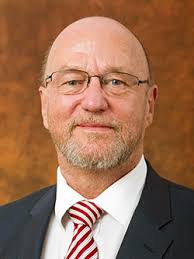
Transcript: SA Tourism Minister Derek Hanekom at the IGLTA Annual Global Convention
The Tourism minister from South Africa Derek Hanekom today addressed the IGLTA Annual Global conference in Capetwon on his stand on Gay, Lesbian, Bisexual and Transgender travel.
TRANSCRIPT: It is a great honour for me to welcome you to the first International Gay and Lesbian Travel Association Convention in Africa (IGLTA). We are extremely proud that you have chosen South Africa for this ground-breaking event.
Welcome to the making of the South African success story. Many of the early chapters of this story are completed, some are still being written, and people like yourselves, who come here from all over the world, are helping us write future chapters about the success of tourism in our country.
I really hope you have built in time to enjoy some of our amazing attractions and offerings: from the best of leisure and adventure, to the stories behind our culture and heritage, to our beautiful landscapes and our warm and wonderful people.
When you visit our iconic sites like Robben Island, you will understand how far we have travelled on our journey to success in the past two decades, how much we have learnt from our oppressive past, and how much we value our freedom and our human rights – rights which many of you here have had to fight long battles to secure, and quite possibly have not yet secured.
This convention will help brand South Africa as a country that welcomes LGBT travellers. The tourism trade network, and travellers, will appreciate all that we have to offer, especially our wildlife, cultural and gastronomic experiences. I am sure that you will also take the bigger story of South Africa, our achievements and advancements beyond tourism, to the wider world when you return home.
Many of you may know that when South Africa first became a democratic state, we were a society perched on the brink of catastrophe. More than three hundred years of repression preceded those momentous days which led to the unbanning of political organisations; the release of political prisoners and the re-shaping of what was an entirely repressive society, into one which cared for its people – one which recognised the dignity of each and every human being, no matter what their race, ethnicity, or standing in society, marital status, disability, gender or sexual orientation might be.
It was a long road to a democratic, caring society. And the change could not happen overnight. It could not, because that is not how human beings work. Change comes slowly. As the English poet WB Yeats once said “peace comes dropping slow”. To change from systematic violence and exploitation to a land where every citizen would be valued and cared for; to change from a land with a racially defined privileged few, to one where the people would share the wealth and opportunity of the country – this could not be anything other than a slow process. When we look back at the 22 years since we achieved our freedom, we have made huge advances, but the journey towards a non-racial, non-sexist society, free of stereotype and prejudice has only really just started.
At that exciting time of the transition from Apartheid to democracy, one of the great icons of our liberation struggle, Archbishop Desmond Tutu, coined the phrase “Rainbow Nation”. It was poetry, and just the right medicine for our divided nation. What he meant by that was that the beauty and wonder of the rainbow lies in nothing other than its many different colours. So he used it as a metaphor for our country. Many colours, but one nation. It worked for us and played a very important part in making people recognise the beauty of our racial and cultural diversity.
As time progressed, we began the real work of addressing inequalities and confronting persistent racism, sexism, homophobia and other forms of prejudice, sometimes in ugly ways. Student protests of the past year have brought all of this into very sharp relief. Much of what was previously just accepted as part of our national life, has been brought into question, analysed and sometimes seriously challenged.
Perhaps we are now better described as a “Kaleidoscope Nation” – where things are constantly changing and shifting, and sometimes even colliding. But the beauty is all still there. The different colours are still wondrous. The shape and form of our nation shifts continuously, but it is up to us to define the dream, and to shape it.
I have no doubt that our shared dream is of a world where you can love who you choose to love, without fear or embarrassment; where the colour of your skin does not matter; where you can worship in your way, or not worship, if that is your choice. A world where our sameness is more important than our differentness – where you can be you and I can be me and we care for each other.
We became the first country in the world to include a sexual orientation protection clause in our Constitution to ensure the rights of all people. Consequently, LGBT people took pride of place as full and equal members of our society. It filled many of us with immense pride, but it was a hard battle and there was considerable opposition to it from some quarters.
These rights are now firmly included in our Constitution, because they belong there and because it is right for them to be there. We recognise that we have not yet reached our destination. We are still on the journey and we still have a very long way to go.
So, as much as I would like to, I cannot promise you that wherever you go in South Africa, as LGBT people, that you will be accepted by everyone. What I can promise you is that you will experience a warmth and a depth of human belonging that you are unlikely to find anywhere else on the planet. I can’t promise you that you won’t experience prejudice, or racism, or sexism or homophobia. But what I can promise you is that you will be treated respectfully as a fellow traveller on this, our human journey.
What I can say without any shadow of a doubt is that, as a country, we need you and want you here. Not because of who we are, but because of who you are. Because of the struggles you have faced. Because of the brave (or even the ordinary) lives that you lead. We need you because you bring experience and challenge into our lives – and we have never been afraid of either. We need you because, in many instances, you bring a new way of looking at things – a new and exciting way of living which has always been part of our South African life, but frequently ignored, or disparaged, or violently rejected. We want you here to be a light to the millions of LGBT people in our country, so that wherever they are, they might know that they are not alone – that they are quite normal and that they should live their lives unafraid. For that is the kind of country we are trying to build.
We have a concept here, which is part of the reason why we did not destroy each other. It is a concept called “Ubuntu” and it is embedded in the soil and it lives in the heart of every South African. It is this: we are who we are, because of others. It is an affirmation that I am a person, because of other persons. I can promise you that you will experience it!
And that is the reason why we included that clause in our Constitution. Because we cannot be whole, if another person is excluded. It is a wonderful thing indeed.
We are fortunate to have the most amazing and unique World Heritage Sites in our country. Here in the Western Cape, you can enjoy the glory of the Cape Floral protected areas, which boasts the greatest floral diversity on the planet. Robben Island stands as testimony to our troubled and divided past – but also as a beacon of hope, courage and resilience – paving the way to democracy in 1994.
We go back to the beginning of time, when a meteor hit the earth at Vredefort and brought about some of the most important climate changes the world has known, until now. We have the iSimangaliso Wetland Park and the majesty of the Maloti-Drakensberg Park, in KwaZulu-Natal; we have the Richtersveld Cultural and botanical landscape in the Northern Cape. And perhaps, most importantly, the place where the umbilical cord of our collective ancestors lies buried, with the astonishing Hominid fossil finds of the Cradle of Humankind World Heritage Site in Gauteng.
It is because of this, our common humanity, that we can open our arms to you and welcome you to our shores. For you are at home! This is the place we all come from. Whether you are Lesbian, or Gay, or Bisexual, black or white or any shade of colour, this incredible continent of Africa is your home. This is where we all come from, whatever journey we have travelled and wherever we find ourselves today.
This continent is our collective home. Let us celebrate our belonging to the family of humankind, and let us rejoice that I am who I am through you. And you are who you are, because of others. Let us celebrate this wonderful thing called “Ubuntu”.
And so, on behalf of the people of South Africa, I welcome you. I cherish you. I value you. I look for the things you can teach me about being human. With you, I long for the day when we are all one, whatever our race, or gender, or sexual orientation.
Let us walk the next steps together on this wonderful and exciting journey.
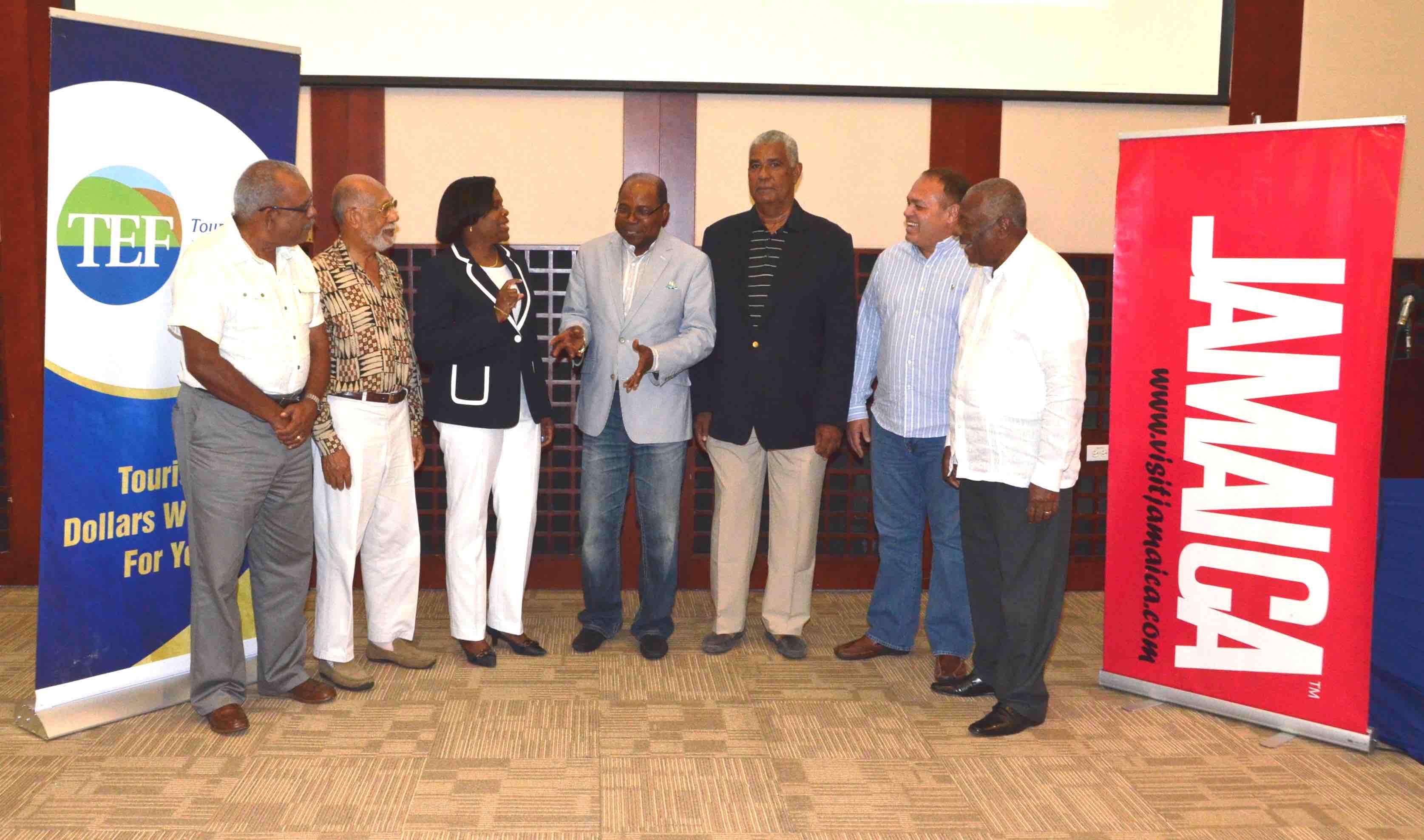
Jamaica Tourism Minister Bartlett Lays out Five Pillars for Tourism Growth
Jamaica Minister of Tourism, Hon. Edmund Bartlett has outlined to the new boards of directors of key agencies in the ministry, five pillars on which the Ministry and its agencies will seek to transform the island’s vibrant tourism sector and achieve double digit growth.
The pillars were outlined yesterday (April 9) during a seminar at the Montego Bay Convention Centre for all board members, to inform them of their roles as directors of their respective agencies. In attendance were chairmen and board members of the Jamaica Tourist Board (JTB), the Tourism Enhancement Fund (TEF), Tourism Product Development Company (TPDCo), Jamaica Vacations Limited (JAMVAC) and Devon House Development Company.
The five pillars include tapping into new markets, developing new products, promoting investment, building new partnerships and the renewal of human capital.
With sights set on pulling in more than US$3 billion from the US$7.2 trillion global tourism market, Minister Bartlett said “we’re going to go to new markets but we have to be careful about that.” He explained that “our existing key market is still not giving us the full returns that we want.”
The United States is being targeted alongside Canada for increased market share. Minister Bartlett was resolute that, “there’s so much more to get from the United States,and we’re gonna get it.” Already, he said an additional flight has been secured out of Vancouver, Canada for the winter.
The thrust will also seek to grow the UK market which has been recovering from a slump due to a recession. “We’re going to grow further because during the period we acquired new partners which put us in a position where we are able now to benefit from the growth curve that is taking place in that economy,” said Minister Bartlett.
The Caribbean and Asia, in particular China have also been prioritized and Mr. Bartlett stressed that Cuba was strategically positioned to help in the growth of tourism in the Caribbean which would augur well for Jamaica. The interest in Cuba he says should play a key role in enabling the region to secure better airlift arrangements with airlines and facilitate multi-destination marketing in the region.
Regarding investments and partnerships, Minister Bartlett told the board directors that while foreign direct investment would be pursued to build large hotels, there will also be heavy focus on convincing Jamaicans to invest in the industry. This, he said, could be achieved by providing services, developing attractions and transforming small hotels and private homes to meet the needs of special needs travellers and other groups.
He said based upon survey feedback, Jamaica is most recognized for its food, music and love and these ingredients will be woven into the marketing strategy to attract more tourists to the island.
Elaborating on the renewal of human capital, the tourism minister said service was a key element “so we must train our workers and we’re going to build out in this dispensation the hospitality school that we’ve been talking about.”
He also disclosed that, “we’re going to build out the capacity of our artisans to produce goods of a wide variety with strong creative output.” To achieve this, “an institute of craft is going to be developed to enable us to have goods made in Jamaica, sold by Jamaicans and to carry the value of Jamaica to the four corners of the world.”
Concurrently, he said three artisan villages will be constructed, one in Ocho Rios transforming the old Reynolds Pier, another in the Freeport next to the Montego Bay Cruise Pier and replacing the existing craft market in the heart of the city, and the third in Falmouth by the old wharf building. Mr. Bartlett said these were being sited “to allow for our artisans and our craft merchandizers to be right where the ship is so that there is no argument again of people bypassing them.”
Additionally, he said “that will also create space for development and the renewal of downtown Montego Bay.”
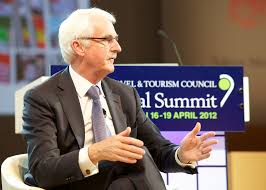
Gerald Lawless new Chairman of the World Travel & Tourism Council
The World Travel & Tourism Council (WTTC) is pleased to announce the election of Gerald Lawless as WTTC Chairman at the Councils Annual General Meeting on 6 April 2016 in Dallas, Texas.
Mr. Lawless, former Group Chief Executive Officer of Jumeirah Group and now Head of Tourism and Hospitality at Dubai Holding, is a leading figure in the world of tourism and hospitality. In his 18 years as CEO of Jumeirah Group, he spearheaded the growth of the hotel chain to one of the best-known luxury hospitality brands in the world, expanding the companys portfolio to 22 hotels in 11 destinations and establishing Burj Al Arab Jumeirah as the most luxurious hotel in the world.
Gerald has been a Member of the World Travel & Tourism Council since 2005, sitting on the Executive Committee since 2008, and as Vice Chairman since 2012.
Mr. Lawless will take over from Dr. Michael Frenzel, Chairman Emeritus TUI AG. The WTTC Chairman is elected for a term of two years.
Outgoing Chairman, Dr. Michael Frenzel said I am delighted to welcome Gerald as WTTC Chairman. Gerald has been an active Member of WTTC, responsible for bringing the Global Summit to Dubai in 2008 and serving on the Executive Committee and as a Vice Chairman. His commitment to WTTCs Mission will be invaluable, as the organization continues to drive recognition of Travel & Tourisms social and economic impact amongst governments around the world.
Gerald Lawless, Chairman, WTTC, said: Over the past 11 years, I have been privileged to be a member of the World Travel & Tourism Council. I believe strongly in the mission of the organization, which advocates the benefits of Travel & Tourism, not only to the global economy but also to society in general. Travel & Tourism is and will remain a force for good. It deserves a lot more recognition from governments worldwide.
WTTCs latest data shows that the sector accounts for 9.8% of the worlds GDP, contributing over USD$ 7.2 trillion. Last year Travel & Tourism added 7.2 million jobs to the global economy, supporting a total of 284 million jobs around the world.
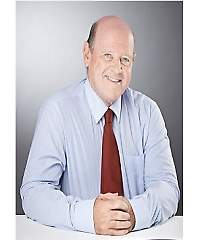
New UNWTO Secretary General, Alain St. Ange? The interview
 After the publication of the article (to discover here) where we stated possible competitors for the succession of Taleb Rifaï at the post of General Secretary of the World Tourism Organization- UNWTO, we had Alain St Ange’s quoted in the article.
After the publication of the article (to discover here) where we stated possible competitors for the succession of Taleb Rifaï at the post of General Secretary of the World Tourism Organization- UNWTO, we had Alain St Ange’s quoted in the article.
Minister, according to some publications you are a possible successor to Taleb Rifaï at the end of his term of office in 2017. Could you give us your comments on this?
It’s a real surprise to be on a list of possible successors to Taleb Rifai after 2017. I feel honored.
It is true that several people have already talked to me about this possibility but it remains the choice of the UNWTO member countries.
At the moment, I am the Minister of Tourism and Culture for the Republic of Seychelles. I have a commitment to, and responsibility for, my country.
Having said that, this article has made me realize that I may also have a responsibility to the tourist industry as a whole. An industry which can help bring peace and prosperity to the world community.
What do you think are the required qualities in a good Secretary-General?
Following on from Taleb Rifaï is a challenge! It requires someone who can unify people, to help countries to work together for the common cause.
With respect to that, and bearing in mind the level of representation embodied in the post of Secretary-General, they also need to have been a Minister of Tourism. Because that post gives them the experience of representing a country and its people at an international level, and also a knowledge of the sector. Above all, they must have a good image and have contributed in a positive way to their country.
If you were elected what would be your first actions?
In order to be elected you have to be a candidate.
Even though I am proud to have been mentioned, my current priority is the Seychelles, where we are in the middle of an election campaign and where I am doing my best to be a good Minister of Tourism.
Whatever happens, the next Secretary-General will have to build on and consolidate the work done by Taleb Rifaï.
I’m specifically thinking about the WTTC and relationships with the private sector, but also PATA, ICAO, UNESCO and lots of other organizations.
Nowadays, although security has to be one of our main concerns, we also have to remember the rules of sustainable development.
We know that you are a fervent supporter of sustainable development and cooperation between countries. Will that remain important to you at the UNWTO?
It is obvious that the next Secretary-General will have to be a sponsor of sustainable development.
In the Seychelles we were already doing it, long before it became a buzzword.
At all events, I believe that candidates from countries that are not involved in sustainable development will be eliminated from the race to become Secretary-General.
A member state’s reputation must also be one of the criteria in the choice of a successor to Taleb Rifaï in 2017. It must be worthy of the position and not upset the citizens of other member countries.
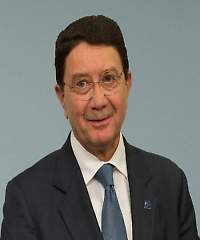
UNWTO Taleb Rifai says no to another term – who will be the next Secretary General?
Secretary General Taleb Rifai has been a dependable fixture with the United Nations World Tourism Organization (UNWTO) for nearly a decade. When you hear the title of UNWTO Secretary General, his name and face automatically comes to mind. Taleb became the Secretary General in March 2009, serving before that as the Deputy Secretary General of the UN agency overlooking World Tourism from February 2006 to February 2009.
Taleb Rifai disclosed to ministers attending the World Travel Market in London earlier this month that he is going to resign as Secretary General at the next General Assembly in 2017 to be held in Chengdu, China.
This will open up the highest government position in the global travel and tourism world.
Who will run for the next Secretary General position? There is some time, and no one is campaigning yet, but here are some possible names.
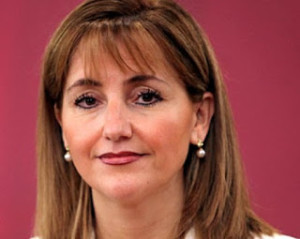
Gloria is a business executive who began her professional career at NCR Corporation in 1989 and worked in the IT industry in various roles, working for North America, Latin America, the Middle East, and Africa regions. Since 1995, she has worked for the travel and tourism industry in different capacities.
She was born in Guadalajara, Mexico, and holds a B.S. in Computer Science from Anahuac University and an MBA from the Kellogg School of Business at Northwestern University. She has studied in marketing, general management, project management, at such institutions as IPADE (PanAmerican Institute for High Business Direction), George Washington University, and other schools as well.
Ms. Manzo worked for Sabre Travel Network and Sabre Holdings for 15 years in a variety of positions. Based in Coral Gables, Florida, she had regional responsibilities and worked for the Latin America and Caribbean region. Later, she held global responsibilities as Vice President for Customer Solutions and Vendor Management in the CIO (what’s this? A place? A Title?) at the Sabre headquarter office in Southlake, Texas. Gloria was also the CEO of Sabre de Mexico, a joint venture between Aeromexico, Mexicana, and Sabre holdings, where she reported to the board of directors.
During Gloria’s time in the private sector, CNN and Expansion recognized her several years in the industry by naming her one of the most influential and powerful women in Mexico.
In March 2010, President Calderon appointed Gloria as the Secretary of Tourism, a cabinet position that leads a sector that contributes to 9% of Mexico’s GDP and employs 2.5 million people directly and 5 million indirectly, according to INEGI (the National Institute of Statistics and Geography of Mexico). Two weeks after her appointment, she was also given the responsibility of overseeing the Mexico Tourism Board.
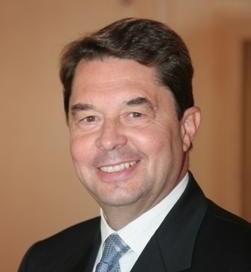 Carlos is currently Director-Executive Secretary of Member Relations at the World Tourism Organization based in Madrid, Spain. Between January 2009 and December 2013, he held the position of Regional Director for the Americas at UNWTO, which he currently also retains.
Carlos is currently Director-Executive Secretary of Member Relations at the World Tourism Organization based in Madrid, Spain. Between January 2009 and December 2013, he held the position of Regional Director for the Americas at UNWTO, which he currently also retains.
He is a professor at the University Rey Juan Carlos in Madrid for the Department of Business Economics, and is the author of various university textbooks on international tourism structure.
Mr. Vogeler started his career in the private sector at Pullmantur, one of the largest Spanish tour operators. During his 16 years of service from 1974 to 1990, he became Deputy Managing Director and introduced many innovations, namely expanding the number of destinations and products, opening new offices and new markets, mainly in Latin America. He also played an active role in the boards of the Spanish Travel Agencies Association and in UFTAA (United Federation of Travel Agents’ Associations).
From 1991 to 2008, he served in various senior management positions at Group RCI, part of Wyndham Worldwide, one of the world’s largest hospitality groups, where he was Managing Director for Southwestern Europe, covering Spain, France, Portugal, and Benelux. Later he was appointed as Vice president of Global Account Strategy & Industry Relations.
He was elected Chairman of the Affiliate Members of UNWTO from 2005 to 2008, representing Group RCI. Since 1997, he had been serving as Vice President of the board of the Affiliate Members and Chairman of the Business Council and is a member of the UNWTO Strategic Group.
He is also a founding member of the Spanish Association of Experts in Tourism (AECIT) and was a member of the International Association of Experts in Tourism (AIEST).
Carlos carried out his studies in Canada and in Spain, graduating in Tourism Business Administration from Escuela Oficial de Turismo de Madrid (now the University Rey Juan Carlos) and did his post-graduate studies at the IESE Business School of the University of Navarra in Spain.
Mr. Vogeler was born in Venezuela in 1952 and is a national of Spain and Venezuela.
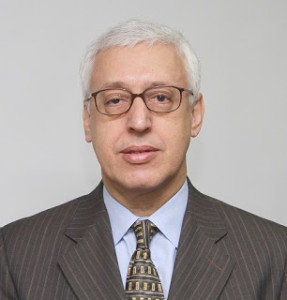 Favilla is currently Executive Director for Operational Programs and Institutional Relations at UNWTO based in Madrid, Spain. Between January 2010 and December 2013, he held the position of UNWTO Executive Director for Competitiveness, External Relations, and Partnerships.
Favilla is currently Executive Director for Operational Programs and Institutional Relations at UNWTO based in Madrid, Spain. Between January 2010 and December 2013, he held the position of UNWTO Executive Director for Competitiveness, External Relations, and Partnerships.
From April 2007, Mr. Favilla Lucca de Paula was Vice Minister of the Secretariat of Institutional Relations of the Presidency of Brazil.
Prior to this appointment, he was Brazil’s first Vice Minister of Tourism (2003-2007) where he played a key role in the structuring of the first exclusive Ministry of Tourism in Brazil.
During his term as Vice Minister of Tourism, he was actively involved in the development and implementation of the first National Tourism Plan and worked to increase both tourism arrivals into the country as well as domestic tourism.
He was also engaged in many of UNWTO’s activities as Head of the Brazilian delegation to all General Assembly and Executive Council sessions, and Chairman of the UNWTO Commission for the Americas in 2006.
From 1999 to 2002, he worked at the Ministry of Development, Industry, and International Trade as Head of the National Department for Business Registry among other positions.
Mr. Favilla Lucca de Paula was in Belo Horizonte from 1980 to 1998, first at the Development Bank of Minas Gerais and then as the State Secretariat for Finance of Minas Gerais.
Mr. Favilla Lucca de Paula has an MA in Development Studies from the Institute of Social Studies, The Hague, The Netherlands, where he specialized in Regional Development Planning (1985-1986). He obtained his undergraduate degree in Economics from the Federal University of Minas Gerais (1979).
Mr. Favilla Lucca de Paula is a Brazilian national, born in 1958.
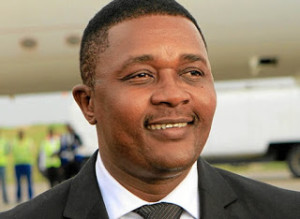 Mr. Mzembi is a Zimbabwean politician, currently serving as Minister of Tourism. He is a Member of the House of Assembly for Masvingo South (ZANU-PF).
Mr. Mzembi is a Zimbabwean politician, currently serving as Minister of Tourism. He is a Member of the House of Assembly for Masvingo South (ZANU-PF).
When the ZANU-PF Movement for Democratic Change national unity government was sworn in on February 13, 2009, Mzembi became Minister of Tourism. He has survived several shuffles in the cabinet of Zimbabwe, and of paramount importance it has been his role in the organizing the UNWTO to be co-hosted by Zimbabwe and Zambia in 2013. Mr. Mzembi has been outspoken and active within the UNWTO network and in the international arena.
In 2013, Seychelles President James Michel, named Alain St.Ange as the islands’ Minister of Tourism & Culture following a reshuffle of his Cabinet of Ministers.
Alain St.Ange is well known to the world of tourism. He was until now the dynamic and well-respected CEO of the Seychelles Tourism Board. Before that, he was a private-sector tourism personality, having managed accommodation establishments in the Seychelles, the Channel Islands in the UK, and in Australia. He has also been a former Chairman and Vice Chairman, respectively, of the SHTA (the Seychelles Hospitality & Tourism Association).
The published biography of 57-year-old Alain St.Ange in Who’s Who in Seychelles by James Mancham, the first President of the islands, shows that Alain St.Ange was born on the island of La Digue in October 1954, and that he followed his formal education at the Seychelles College on the main island of Mahe. He also followed Hotel Management Studies in Germany and Tourism Studies in France.
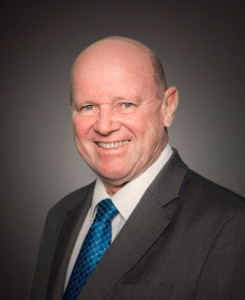 Alain St.Ange is well-known on the international scene, where he is a popular speaker at tourism forums and conventions. He has been credited with increasing the visibility of the Seychelles in all of the islands’ key markets and having turned the Seychelles tourism industry around since taking office, first as Director of Tourism and later as CEO of the islands’ Tourism Board.
Alain St.Ange is well-known on the international scene, where he is a popular speaker at tourism forums and conventions. He has been credited with increasing the visibility of the Seychelles in all of the islands’ key markets and having turned the Seychelles tourism industry around since taking office, first as Director of Tourism and later as CEO of the islands’ Tourism Board.
Alain St. Ange has been extremely active in UNWTO recently and brought a lot stronger voice to Africa as a whole. St.Ange is liked in all parts of the world. He is outspoken, approachable, and has single-handedly brought Seychelles to the global map as a world-class island destination.
The wild card is China. Since China won the bid for the 2017 General Assembly, it may have ambitions to also make a run for the UNWTO General Secretary position.
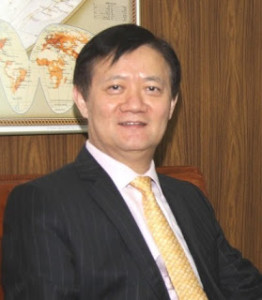 Mr. Xu Jing is currently Regional Director for Asia and the Pacific at UNWTO – a position he has occupied since the end of 2003. In addition to his regional responsibilities, as of January 2014, he was appointed UNWTO’s Director-Executive Secretary of the General Assembly and the Executive Council.
Mr. Xu Jing is currently Regional Director for Asia and the Pacific at UNWTO – a position he has occupied since the end of 2003. In addition to his regional responsibilities, as of January 2014, he was appointed UNWTO’s Director-Executive Secretary of the General Assembly and the Executive Council.
Mr. Xu Jing began his career in tourism at the China National Tourism Administration where he was in charge of the International Relations division. He joined UNWTO in 1992 as Officer to the Regional Representation for Asia and the Pacific. Over the years, he coordinated and supervised numerous UNWTO technical cooperation projects and sectoral support missions on subjects of contemporary interest to the tourism community of Asian countries.
In addition to the above, Mr. Xu Jing holds honorary academic positions in a number of universities, in some of which he has lectured on tourism issues of international and regional significance. These include the Chinese University of Hong Kong, University of Suzhou, Sun Yat-sen University, Shanghai Institute of Tourism, Hainan University and Hong Kong Polytechnic University, Kyunghee University (Republic of Korea), and University of Balearic Islands (Spain). He is also a senior advisor to the Chinese Municipalities of Guilin and Huangshan.
Mr. Xu Jing holds a Master’s Degree in Tourism Management from the University of Surrey in England and majored in English literature during his undergraduate studies in Beijing Second Foreign Language Institute.
